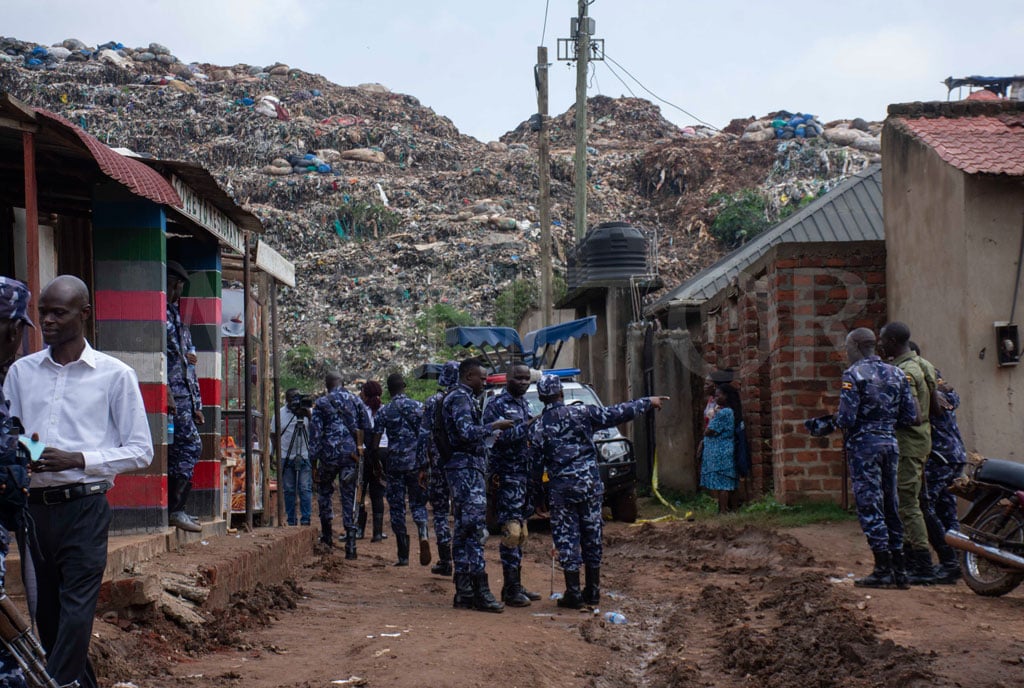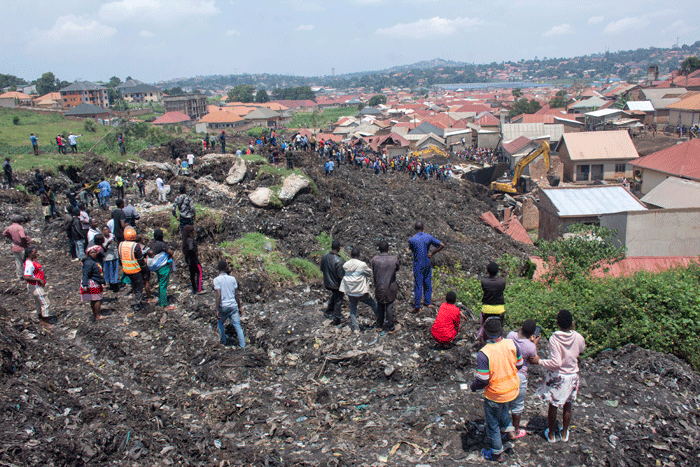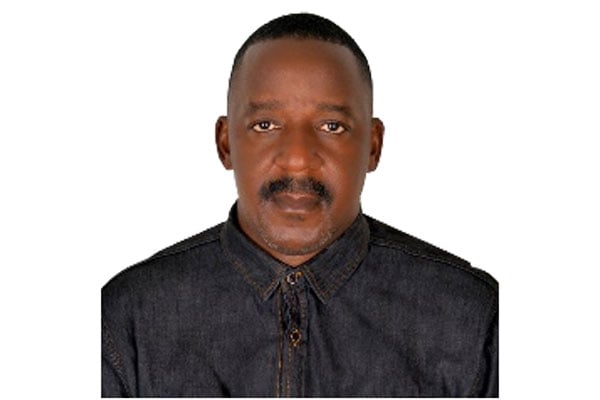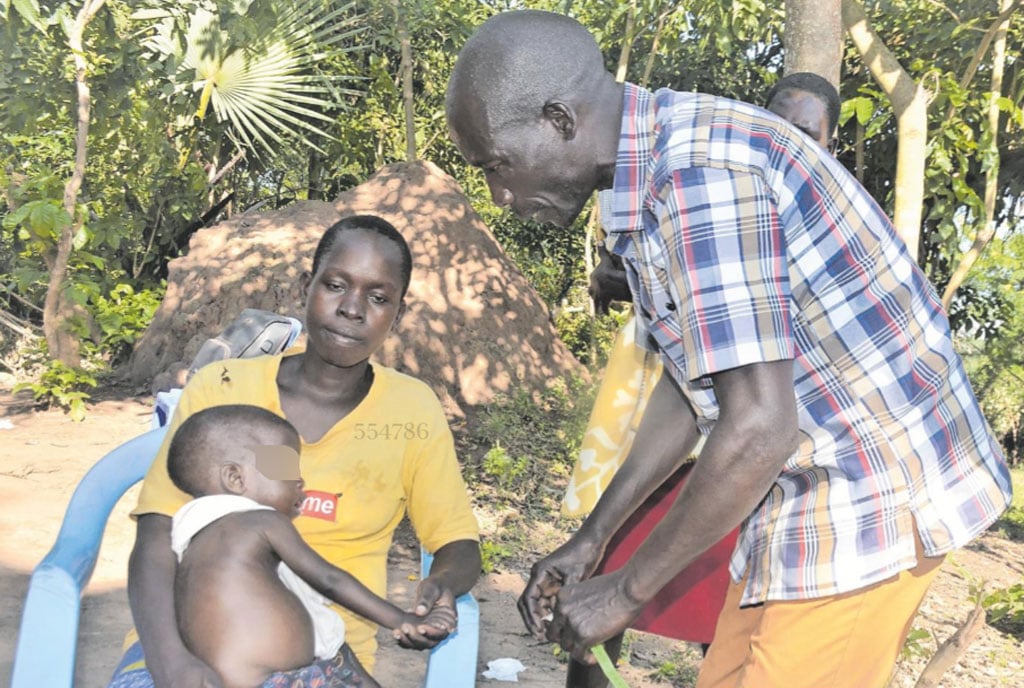
Rescuers use excavators to search for the missing persons after Kiteezi landfill collapsed and buried several homes in the area on August 10, 2024. PHOTO | MICHAEL KAKUMIRIZI
Nearly three months after the Kiteezi landfill collapse, the wounds of loss remain fresh in the now ghostly area. This is compounded by the feeling that the government is dragging its feet in fulfilling its pledges.
Delayed compensation and the obscurity around when it will come or the office in charge has irked the affected who are now contemplating marching to Parliament, the Office of the Prime Minister or City Hall.
Mr David Ssekebba and his six siblings lost their mother and breadwinner, a brother and their home in the tragedy. Homeless and jobless, Mr Ssekebba and his siblings now depend on well-wishers for shelter and food.
According to post-mortem reports seen by Monitor, his mother, Jessica Nantege, who was asleep when her house was buried under a heap of garbage, died of a head injury following blunt force trauma. Mr Ssekebba’s brother, Timothy Kisule, died of traumatic asphyxia.
A generic report from the government-run city mortuary had indicated that all the 35 victims of the landfill collapse “were suffocated by the garbage that covered them”.
“The uncertainty about what will happen is weighing down, even while I mourn my mother and brother," Mr Ssekebba said.
“We are living in unpleasant conditions. At least while in the camp we all converged in the same areas and we would easily go to a neighbour for psychosocial support,” Ms Joan Nabayiza, one of the siblings, added.
Mr Ssekebba said their father—who did not live with them but was registered as the head of the household—disappeared with the Shs2m the government gave each household as well as the Shs10m for funeral arrangements. They said the government should compensate them for the house and property lost.
“My appeal is for the government to compensate us so that we can go and start our lives elsewhere. We are getting different information from the government. KCCA said they were working on our issues, then last week the Chief Administration Officer said he was in charge. They say the Prime Minister is no longer in charge of our welfare. It is now coming to three months, and nothing has been comprehensively addressed, not even the recovery of the bodies,” Mr Ssekebba said.
There are four categories of affected persons: those who lost loved ones and had their property buried by the garbage; those who have been forced to abandon their houses due to flooding when the garbage blocked all drainage systems; those whose houses the Prime Minister ordered demolished to create access routes for earth-moving equipment; and those in the 200-metre buffer zone who were ordered out of their homes.
None of these categories have been compensated.
Ms Haula Nakitende lost her five-bedroom house and five rentals. She said they last interfaced with the government on October 18, but no definitive answers were given.
“All we need from the government is fair and timely compensation. We want to know when it will come. We never struggled with school fees. We never begged from the government. The government owes us, it is not doing us a favour. Are they waiting for us to demonstrate?” she said.
Ms Miria Nansubuga, who has lived in the area for 13 years, returned to her home which is the buffer zone after failing to secure accommodation elsewhere.
“If the government really cares, let them stabilise the garbage hill. I am in the buffer zone, but I cannot leave before I am compensated. My home is here [as indeed are] my rentals from where I used to get money to pay school fees for my eight children. The compensation should be fair because the cost of construction now is not like it was when we constructed," she said.
Those we spoke to are opposed to relocation to Ddundu, Mukono, an idea that has been floated by some officials.
“Why don’t you compensate them and they choose where to go? Must you force them? There must be a work plan, but you can’t just tell people to go where they are uncomfortable," Kampala Lord Mayor Erias Lukwago said.
On October 10, Ms Lillian Aber, the minister of State for Disaster Preparedness, said compensation would be done after comprehensive valuations by the government chief valuer.
It still remains unclear what office is handling the compensation. In an October 22 letter to the prime minister, Mr Frank Rusa, the acting Kampala Capital City Authority (KCCA) executive director, says the Authority lacks capacity to identify, validate, and compensate or relocate the affected persons.
Mr Kabuye Kyofatogabye, the state minister for Kampala Affairs, maintains all the affected will be compensated.
“All the 446 households plus these 100 affected by the flooding, will be paid. No one is going to be pushed off their land, but we are saying for now, get out of those houses to avoid a catastrophe. I am not going to take anyone's land, I am only trying to save your life,” he said.
When Monitor visited the area, earth-moving equipment was still working through the garbage hill, where some of the unaccounted-for persons, mostly garbage pickers, are suspected to have been buried. Elsewhere, other excavators were digging drainage channels to free the flooded waters.
Minister Kyofatogabye said retrieval efforts will likely be called off at the end of this month.
“Between eight and 11 people are still missing, and efforts are still on but by the nature of the garbage, the heat and the reactions we don’t have hope of them being found because there is also a lot of heat…we may decide to hold a memorial prayer and we commit the souls of those because we have done everything we could,” he said.
He also warned those who have returned to the houses in the buffer zone to vacate. “As I speak now, a new tragedy can occur because there are new cracks on the other side of the heap, which now can affect the eastern side, especially the villages of Kiteezi…but efforts are ongoing to reduce the height of the heap so it can be managed and avoid the collapse as we wait to get an investor to decommission it,” Mr Kyofatogabye said.
Background
Decommissioning the landfill Officials say decommissioning the landfill will take approximately six months. KCCA had earlier requested for Shs36b for the decommissioning activities.
But in the wake of the collapse, Shs16b was allocated for immediate interventions, including supporting temporary dumpsites, stabilising Kiteezi slopes, acquisition of 200 acres.







